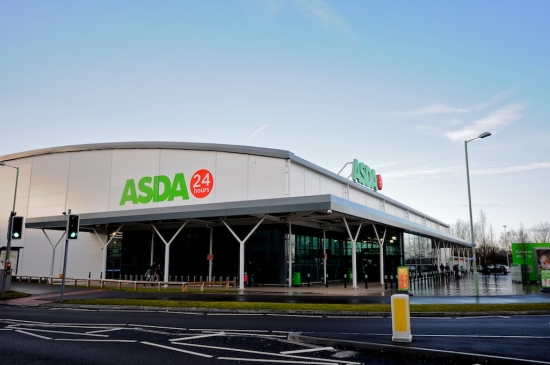Supermarkets are coming up with increasingly inventive ways to attract consumers into their branches. Money off vouchers, price comparison initiatives and price drops are now a common feature in many big name stores as bosses play on the general public’s need to save money on their weekly shop.

However, one of the largest draws to supermarkets lies in their filling stations, with petrol prices becoming increasingly competitive while the battle for customers rages on amongst the four largest UK chains.
This week, both Asda and Tesco have announced that they will knock 2 pence per litre off the cost of petrol for their customers, thereby pulling costs down from the record prices seen earlier this year at the height of the fuel panic buying spree. Customers in Asda’s forecourts will pay no more than 133.7 pence for a litre of petrol, while diesel will remain at 139.7 pence per litre.
Tesco quickly followed suit, announcing its own price drop just hours after Asda’s promise hit the press. The new prices came into effect on the 25th October, with rivals Morrisons and Sainsbury’s expected to follow suit in the coming days.
Asda’s head of petrol trading, Jeremy Walton, said; “We always aim to be the first retailer in each part of the country to drop prices when costs are falling and the last to put them up.”
In fact, Asda is ranked consistently by motoring group the AA as the cheapest fuel retailer in the UK, with the American-owned company generally the first to drop prices and spark fuel wars with its major competitors.
However, it does this at great cost to itself, as figures from the AA show. The Group’s petrol price index priced a litre of petrol in October, based on the international cost of oil, at 138.9 pence. While this is a drop of 1.3 pence from last month, it still demonstrates that Asda is willing to make losses in order to attract customers to its forecourts.
It is not only Asda sustaining heavy losses in the fuel retailing sector, either. The average supermarket price for unleaded petrol dropped to 136.8 pence this month, bringing the difference between the UK average price and the cost of a litre at supermarket petrol stations to 2.1 pence.
With this latest price drop, Asda is now offering petrol at a huge 5 pence per litre below the UK national average – which is good news for consumers, but bad news for independent fuel retailers unable to match the supermarket giant’s rock bottom prices.
Chairman of the Retail Motor Industry Federation, Brian Madderson, claims that the majority of independent fuel retailers make only 5 pence per litre profit – meaning that if they matched the prices of lower cost supermarkets they would not make a profit at all.
He also argues that supermarket chains are using fuel as a “loss leader” – making no profit on petrol in an attempt to encourage consumers to visit their superstores, thus making up the deficit that way.
Unfortunately, this has meant that many small retailers have gone out of business due to being priced out of the market, with industry experts estimating that one independent forecourt now closes every day in the UK. The Retail Motor Industry Federation backs up this claim, showing that the number of independent retailers has shrunk significantly since supermarkets began taking a slice of the action.
In 1966, for example, there were around 40,000 registered independent fuel retailers in the UK, which had dropped to 21,000 by the 1990s. Today, only around 8,000 independent fuel retailers remain trading in this country.
Clearly, this is a huge problem for small petrol stations which cannot drop their prices without sustaining heavy losses. But, in a country where members of the public must save every penny they can, enticing customers away from the incredibly low prices offered by supermarkets may prove to be just one bridge too far for a nation becoming rapidly fed up with the high cost of filling their vehicles.
Would you choose to fill up your car at an independent retailer’s garage, despite the fact that supermarkets offer petrol at a much lower price, in order to help these businesses continue to exist? Should supermarkets be forced to stabilise their prices, even if it means the general public may end up paying more for fuel?
Previous Post
Santander Reports Profit Fall Despite Success of UK Arm